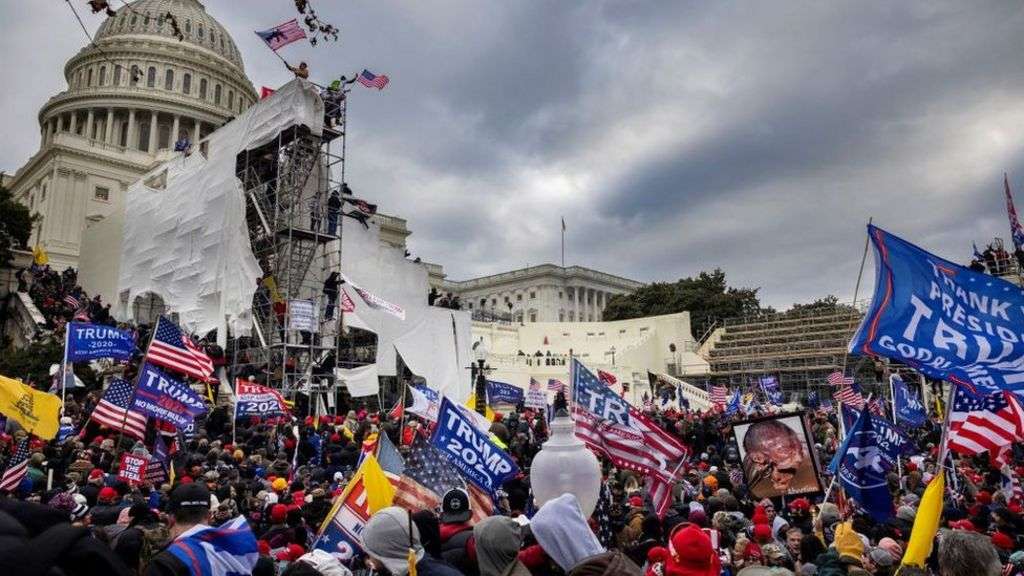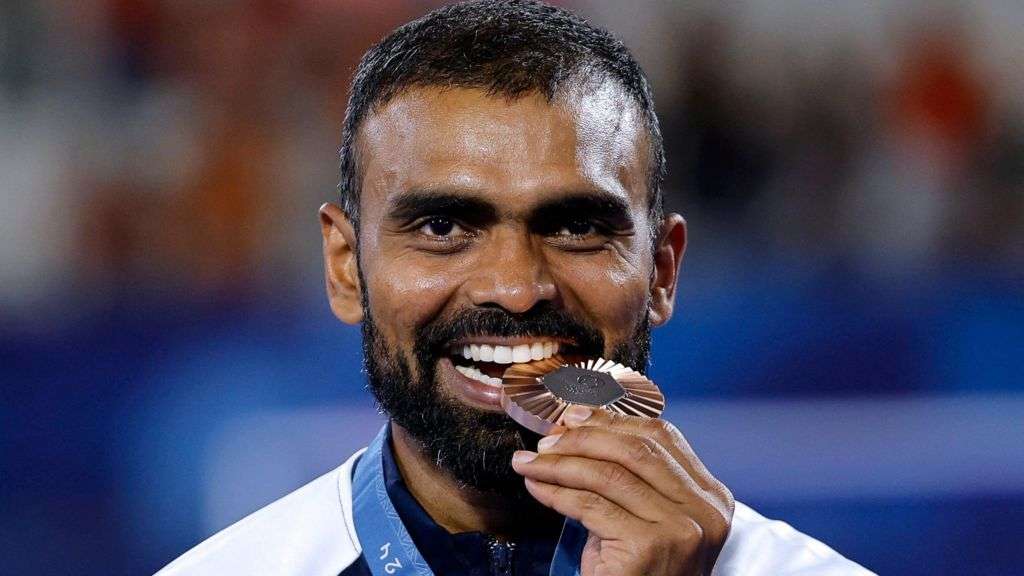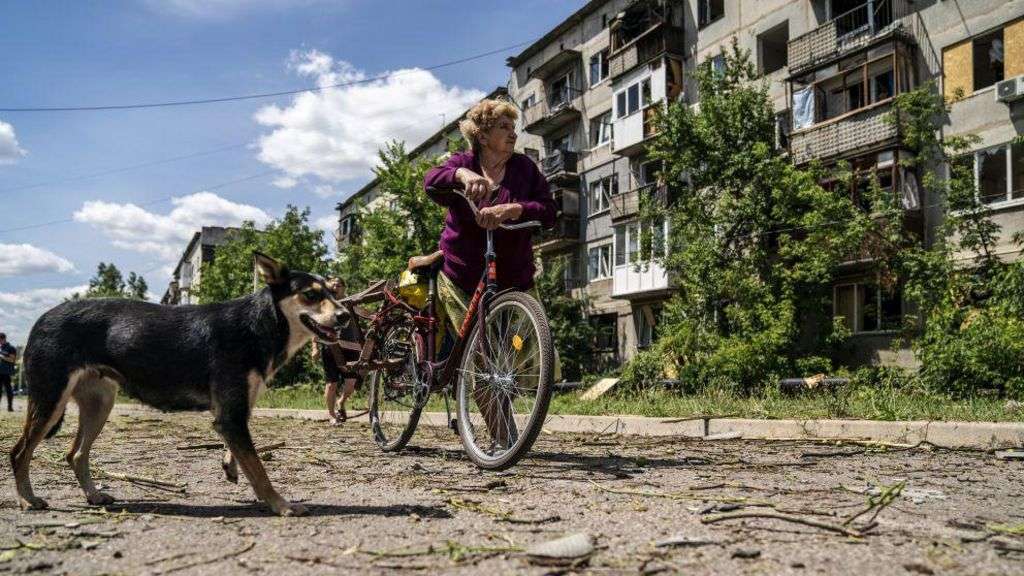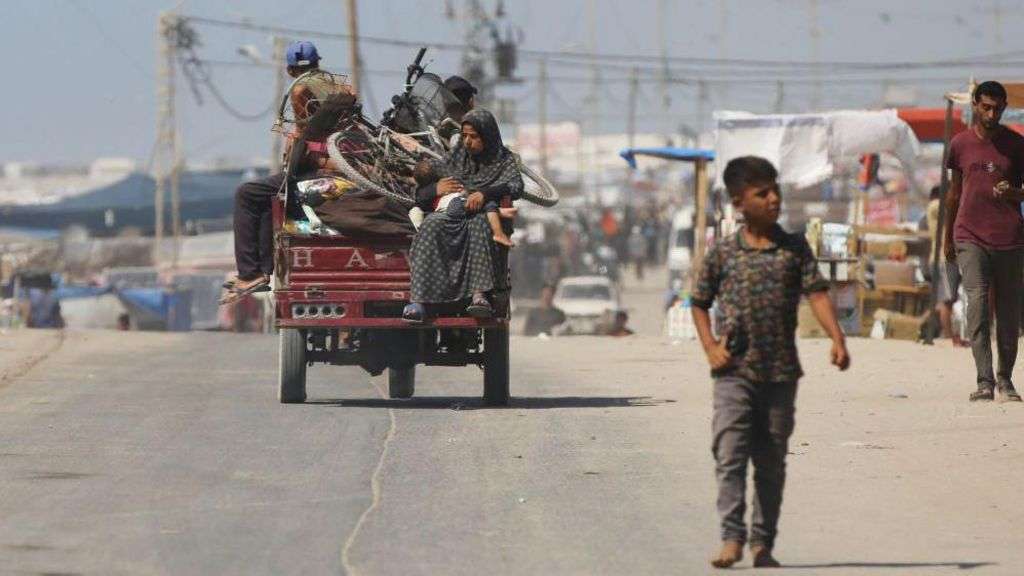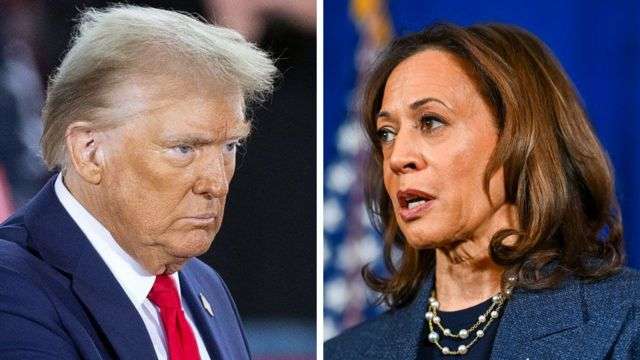The US Supreme Court has begun hearing a case that could undo charges for those who stormed the Capitol in 2021. It focuses on whether a 2002 federal law created to prevent corporate misconduct could apply to individuals involved in the 6 January riots. More than 350 people have been charged in the incident under that law, which carries a 20-year prison penalty. Donald Trump faces the same charge in the pending federal case accusing him of election interference. The law makes it a crime to "corruptly" obstruct or impede an official proceeding.
On Tuesday, Supreme Court Justices heard two hours of arguments over the law's interpretation. However, it remained unclear how they would rule.
A lawyer for a man who stormed the Capitol and was prosecuted under the law argued before the Justices that "a host of felony and misdemeanour" crimes already exist to prosecute his client's actions.
The 2002 law passed in the wake of the Enron accounting scandal, Jeffrey Green said, was not one of them.
US Solicitor General Elizabeth Prelogar counterargued that rioters deliberately attempted "to prevent Congress from certifying the results of the election," therefore obstructing an official proceeding.
Both fielded sceptical questions from the Justices.
At one point, Mr Green argued that there is no historical precedent in which the law was used to prosecute demonstrators.
Justice Sonia Sotomayor replied: "We've never had a situation before where (there was an attempt) to stop a proceeding violently, so I am not sure what a lack of history proves."
On the other hand, Ms Prelogar fielded questions from Justice Neil Gorusch on whether the law could then be stretched to apply to a "sit-in that disrupts a trial" or "a heckler" at the State of the Union Address.
"Would pulling a fire alarm before a vote qualify for 20 years in federal prison?" he asked, appearing to reference an incident in which Jamaal Bowman, Democrat House representative, pressed a fire alarm in the Capitol.
How the top court rules could have wide-ranging effects on the hundreds of people charged, convicted or sentenced under the law, as well as the prosecution of Mr Trump.
Here is a breakdown of the key players and the law being argued:
What is the 2002 federal law at the centre of the trial?
The law is called the Sarbanes-Oxley Act.
It was passed in response to the Enron scandal in the early 2000s, after it was exposed that those involved had engaged in massive fraud and shredding documents.
It criminalises the destruction of evidence - like records or documents. But it also penalises anyone who "otherwise obstructs, influences or impedes any official proceeding, or attempts to do so."
How has it been used in response to the 6 January riots?
Under the Sarbanes-Oxley Act, the US Department of Justice (DoJ) has brought obstruction charges against those who participated in the storming of the Capitol.
Federal prosecutors argue they did so to impede Congress' certification of the presidential electoral vote count to cement Joe Biden as the winner of the 2020 election.
Therefore, the latter portion of the law that deals with obstructing an "official proceeding" would apply, the DoJ says.
Who is challenging the law's use in this case, and why?
The Supreme Court is hearing a challenge to the law's application brought forward by a former Pennsylvania police officer.
Joseph Fischer was charged under the Sarbanes-Oxley Act with obstruction of a congressional proceeding on 6 January, as well as assaulting a police officer and disorderly conduct.
His lawyers argue that prosecutors overreached with applying the Act, which they say deals explicitly with destroying or tampering with evidence integral to an investigation.
Those who challenge the law's application in 6 January cases also argue that a broad interpretation of the law would allow the prosecution of lobbyists or protestors who disrupt matters in Congress.
How could the Supreme Court ruling affect Trump?
The former president is charged under the very same law in a federal case accusing him of working to overturn the results of the 2020 election, which he lost to Mr Biden.
If Supreme Court justices rule that the law does not apply to the 6 January rioters, Mr Trump could seek dismissal of half the charges he faces in that case.
It also could be seen as a political win for the former president, who is seeking re-election in November, as he repeatedly has accused prosecutors of overreach.
A final ruling is not expected until June.


